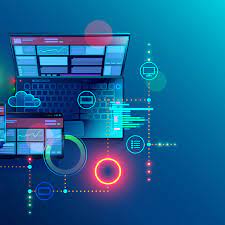Web3 – Next Generation Of The Internet All About Overcoming Future Challenges!

In an era characterised by rapid technological evolution and shifting consumer behaviours, businesses and marketers find themselves at the precipice of a new digital frontier – Web3. This next generation of the internet, with its decentralisation, blockchain technology, and token-based economics, presents both unprecedented opportunities and challenges. As we delve into why Web3 marketing is pivotal for overcoming future challenges, it’s essential to understand the transformative potential it holds for engaging with audiences in more personal, secure, and innovative ways.
The Rise of Decentralisation and Consumer Empowerment
Web3 marks a departure from the centralised systems that currently dominate the internet. In this new era, power is redistributed from centralised authorities and corporations to individual users and communities. This decentralisation not only enhances user privacy and control over personal data but also opens up new avenues for marketers to engage with their audiences. By leveraging decentralised platforms, businesses can build more trust with their consumers, fostering a sense of community and ownership rarely seen in the Web2 environment.
Enhanced Data Security and Privacy
One of the most pressing challenges in today’s digital landscape is the need for improved data security and privacy. With frequent data breaches and misuse of personal information, consumers are increasingly wary of how their data is handled. Web3, with its blockchain foundations, offers a solution to these concerns. Blockchain’s inherent security features and transparency provide a more secure and private framework for online interactions. For marketers, this means the ability to reassure customers about the safety of their data, building stronger relationships based on trust and respect for privacy.
Tokenisation and New Economic Models
Web3 introduces the concept of tokenisation, where digital assets can be owned, bought, and sold through cryptocurrencies and NFTs (Non-Fungible Tokens). This opens up innovative marketing strategies, such as loyalty programs and personalised experiences, powered by these digital assets. Marketers can create unique, value-driven interactions that incentivise engagement and loyalty, transforming the traditional consumer relationship into something more dynamic and participatory.
Personalised and Immersive Experiences through AI and AR
The convergence of Web3 with emerging technologies like AI (Artificial Intelligence) and AR (Augmented Reality) paves the way for deeply personalised and immersive user experiences. AI can analyse vast amounts of data to deliver highly targeted content, while AR can create engaging and interactive brand experiences. Together, they enable marketers to connect with their audience on an unprecedented level, delivering the right message, to the right person, at the right time, in the most engaging way possible.
Overcoming the Challenges of Adoption and Integration
Despite its potential, the transition to Web3 marketing is not without its challenges. The technical complexity of blockchain, the volatility of cryptocurrencies, and the learning curve associated with new platforms can be daunting for both businesses and consumers. Additionally, regulatory uncertainty looms large, as governments around the world grapple with how to oversee this new digital economy. Marketers must navigate these challenges, investing in education and infrastructure, to fully harness the power of Web3.
The Future is Now: Preparing for a Web3 World
As we stand on the brink of this new digital era, the question is not if Web3 will impact the future of marketing, but how quickly and profoundly. Businesses that understand the transformative potential of Web3 and begin to integrate its principles into their marketing strategies will be the ones to thrive. This means not only adopting new technologies but also embracing a new mindset focused on transparency, empowerment, and innovation.
Finally, Web3 marketing represents a bold step forward into a future where digital interactions are more secure, personalised, and meaningful. By overcoming the challenges of data privacy, engaging with tokenisation, and leveraging emerging technologies, businesses can unlock new opportunities for growth and connection.






